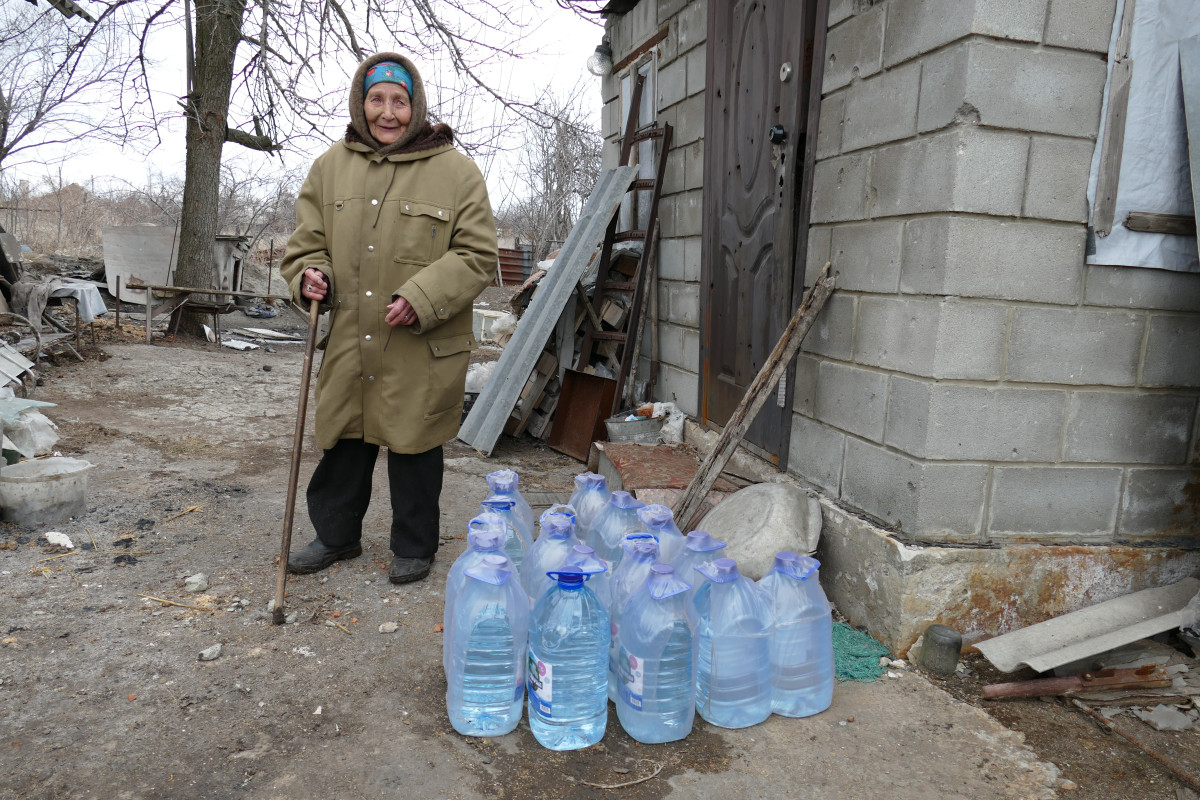ECHO renews partnership with People in Need for another 7 years
Published: Feb 1, 2021 Reading time: 5 minutes Share: Share an articleThe partnership between the Czech aid organisation People in Need (PIN) and the humanitarian department of the European Union has been renewed for seven more years until 2027. With the continued EU financial support, which first began in 2004, PIN will be able to provide essential humanitarian assistance to millions of people in countries like Syria, Ukraine, Ethiopia, Nepal, and the Democratic Republic of the Congo.

When assessing its potential partners, the European Union Civil Protection and Humanitarian Aid Operations (ECHO) screens organisations with a complex systemic audit, and PIN is pleased to have been successfully certified once again.
PIN Executive Director Šimon Pánek said: “PIN has been an EU partner for 17 years. During this time, our collaboration has been of paramount importance for people in conflict-affected countries and in disaster-prone areas. Since the inception of this collaboration, PIN and the EU have partnered on 66 projects to help people with a total budget of 100 million euros. The support coming from the European Union is crucial for us as it enables us to expand our work and help people in need worldwide.”
Paraskevi MICHOU, Director General of the European Union Civil Protection and Humanitarian Aid Operations, said: “PIN is our long-term, reliable partner, always willing to take measured risks to reach the most vulnerable people. Together we are providing food, water, hygiene, shelter, and cash assistance in complex crises like Syria. So far we distributed 100 million euros in aid to the most vulnerable people in 12 countries.”
PIN is currently partnering with the EU in Armenia, DR Congo, Ethiopia, Nepal, Syria, and Ukraine. Past projects include programmes in Afghanistan, Iraq, Cambodia, Mongolia, Turkey, and Chechnya.
You can find more photos HERE
Projects average one year in duration and deliver about 1.5 million euros in aid. PIN´s largest EU-funded project was assistance to conflict-affected people in Syria, a multiyear effort that delivered some 7.7 million euros in aid. Thanks to the European cooperation, the largest volume of humanitarian assistance centres on supporting people in conflict-affected countries. PIN focuses mainly on fulfilling people´s basic needs like safe shelter, food, potable water, and hygiene. PIN also provides psychosocial support and cash assistance.
Our help in Syria:
In Armenia, PIN, in partnership with the European Union, is supporting people who fled fighting in Nagorno-Karabakh and is providing assistance to host communities. Apart from providing shelter for winter, assistance includes ensuring basic hygiene needs are met, and the distribution of cash aid for necessary expenses. PIN will also soon provide specialised psychological on-site support to help people affected by the conflict. In total, PIN’s support to those affected by the Nagorno-Karabakh conflict will reach nearly 30,000 people and involve 35 local organisations.
Thanks to EU financial support, PIN also helps people prepare for natural disasters and mitigate their impacts. For instance, millions of people in Cambodia are threatened by floods every year and, until recently, those living in flood zones lacked early warning of impending disaster. To address this issue, PIN, with EU support, developed a system of early warning for flood-prone parts of Cambodia. Called EWS 1294, the system delivers information about imminent floods early enough to save lives and protect property livestock, which is often the only source of livelihood.
A similar EU-funded early warning system was developed for herders in Mongolia to alert them to the threat of the dzud (extreme winter conditions) in advance.
Finally, EU’s support enables PIN to raise public awareness of crises and humanitarian assistance. For instance, with support from the EU, PIN produced a 10 episode series called This is Us, This is Ukraine for an EU-wide audience. The series captures the conflict from the perspective of five ordinary people who live in eastern Ukraine. Similarly, PIN has used EU support to produce animated videos and an interactive website detailing the hardship of people living in the war-stricken part of northern Syria.
History of PIN-EU partnership
The PIN-EU partnership began in 2004, when the Czech Republic joined the European Union. At that time, PIN was already one of the biggest humanitarian organisations in the 12 new member states and was the first one to sign a long-term partnership agreement with the EU.
Jan Mrkvička, PIN’s Relief and Development Department director, remembers this period well. “When we first partnered with the EU, we had already prepared projects to help Chechnya and Afghanistan,” said Mrkvička, who at the time headed a PIN projecting helping returnees and internally displaced people in Afghanistan. “The first contract was signed on the very day that the Czech Republic joined the EU, and the second one was entered into a month later.”
As a result, with the first $1 million euro contract, the EU instantly became PIN’s biggest foreign donor. But that wasn’t the only benefit. Mrkvička adds that partnering with the EU “gradually but firmly pushed us to professionalise our work.”
With a multi-layered funding strategy, PIN is able to respond quickly to crises while concurrently developing long-term solutions. For instance, individual contributions to PIN´s Club of Friends fund is used for immediate assistance during humanitarian crises and disasters. Funding from the EU, meanwhile, enables PIN to scale up interventions and create programs that are more comprehensive in nature.
While the EU supports many people around the world suffering from conflicts or natural disasters, ECHO helps in Europe as well. For example, the European Union coordinated the delivery of medical ventilators to the Czech Republic during the coronavirus crisis, is helping with the delivery of assistance to victims of the recent earthquake in Croatia, and has coordinated responses to destructive fires in Greece, among other EU interventions.
Contacts:
Marek Štys, PIN´s Head of Emergency Programmes, marek.stys@peopleinneed.cz
Petr Štefan, PIN´s Relief and Development Department Communication Officer, Petr.Stefan@peopleinneed.cz



